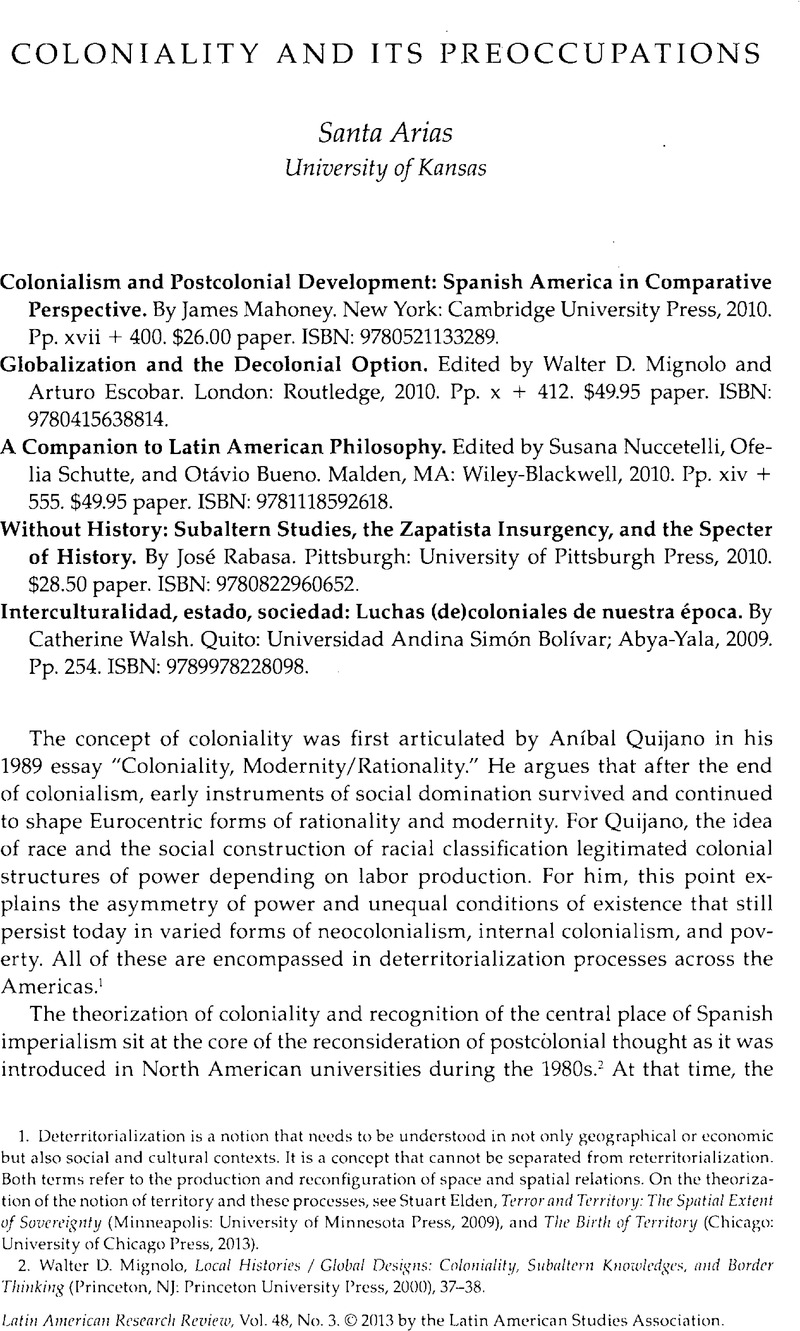Published online by Cambridge University Press: 05 September 2022

1. Deterritorialization is a notion that needs to be understood in not only geographical or economic but also social and cultural contexts. It is a concept that cannot be separated from reterritorialization. Both terms refer to the production and reconfiguration of space and spatial relations. On the theorization of the notion of territory and these processes, see Stuart Elden, Terror and Territory: The Spatial Extent of Sovereignty (Minneapolis: University of Minnesota Press, 2009), and The Birth of Territory (Chicago: University of Chicago Press, 2013).
2. Walter D. Mignolo, Local Histories / Global Designs: Coloniality, Subaltern Knowledges, and Border Thinking (Princeton, NJ: Princeton University Press, 2000), 37-38.
3. Ángel Rama, La ciudad letrada (Hanover, NH: Ediciones del Norte, 1984), and Antonio Cornejo Polar, Escribir en el aire (Lima: Editorial Horizonte, 1994).
4. The institutional history of postcolonialism in different academic fields has been examined several times. Most notable is the debate triggered by Patricia Seed's review essay, “Colonial and Postcolonial Discourses,” Latin American Research Review 26, no. 3 (1991): 181–200, and the responses it received from Mignolo, Hernán Vidal, and Rolena Adorno. During that same period, historian Florencia Mallon provided another insightful perspective on postcoloniality that emphasized its relevance to historical scholarship; see “The Promise and Dilemma of Subaltern Studies: Perspectives from Latin American History,” American Historical Review 99, no. 5 (1995): 1491-1515.
5. Among Latin American scholars, divergent positions have emerged in the search for a model for theorizing the sociopolitical and cultural legacies of Latin America. A critique of the limitations of Quijano's coloniality of power and decolonial thought can be found in the important contributions of Alberto Moreiras, “The Fatality of (My) Subalternism,” CR: The New Centennial Review 12, no. 2 (2012): 229-235; Jon Beasley-Murray, Posthegemony: Political Theory and Latin America (Minneapolis: University of Minnesota Press, 2010); and Oscar Ariel Cabezas, Postsoberanía: Literatura, política y trabajo (Buenos Aires: Ediciones La Cebra, 2013).
6. Quoted by Walsh; Edgardo Lander, “Eurocentrism and Colonialism in Latin American Thought,” Nepantla: Views from South 1, no. 3 (2000): 521.